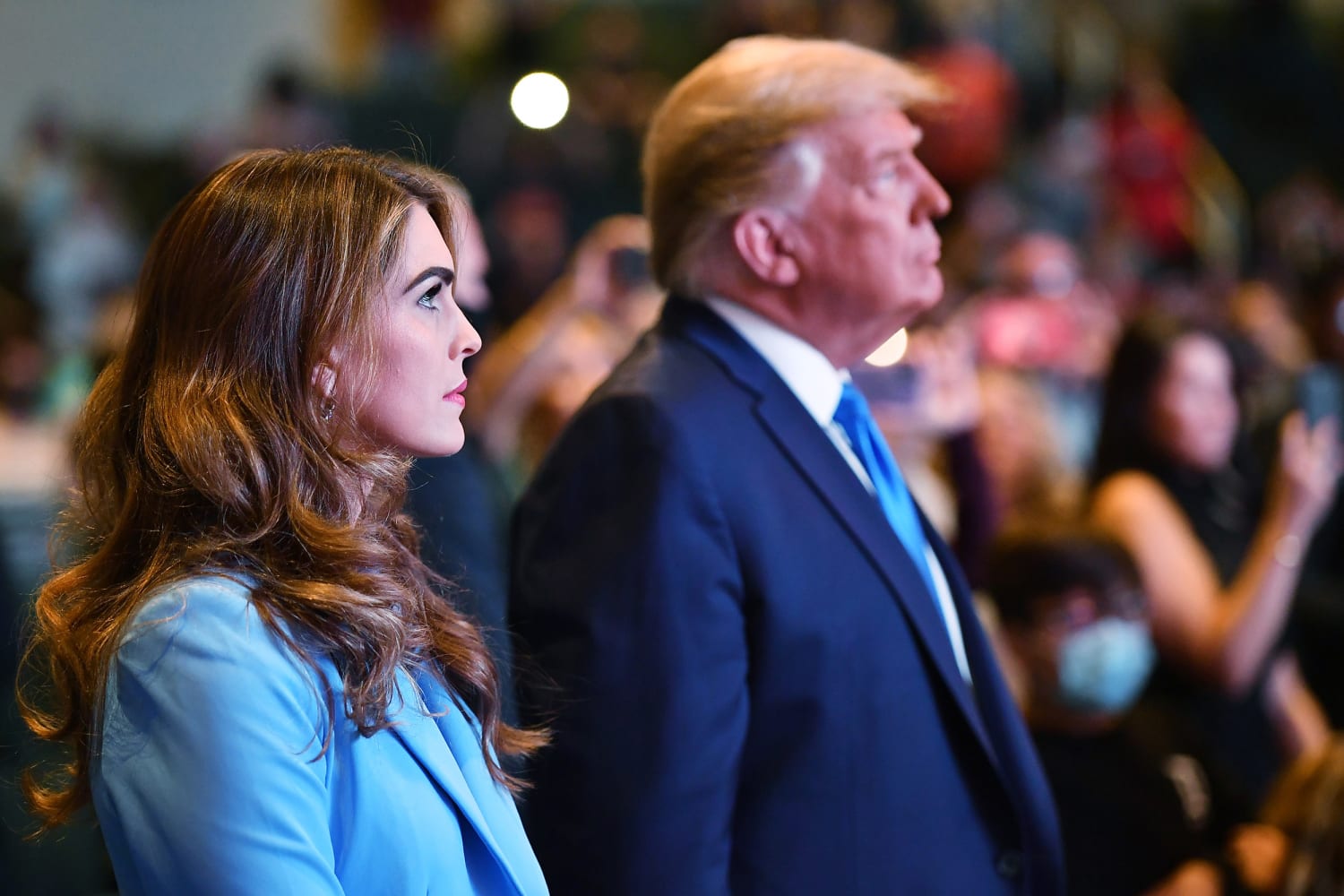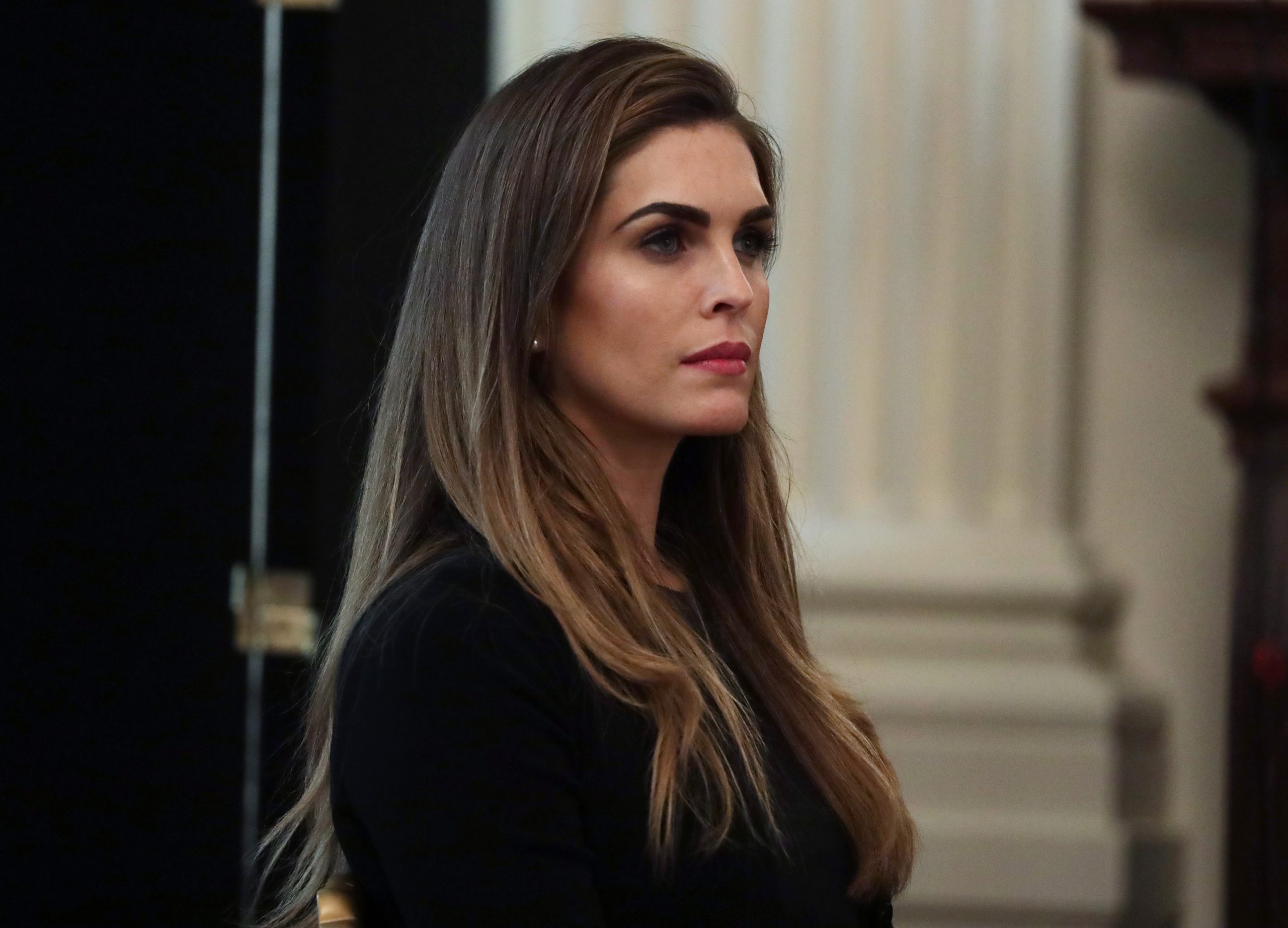When the Manhattan district attorney heads to trial against Donald Trump later this month, the lineup of witnesses is expected to feature former “fixer” Michael Cohen and adult film star Stormy Daniels, both pivotal figures in potentially swaying the jury towards convicting the former president. Among the anticipated witnesses, another notable figure poised to take the stand is former Trump adviser Hope Hicks.
Having met with prosecutors last year during the construction of their case against the presumptive GOP nominee, Hicks is now set to testify in the courtroom on behalf of the DA’s office, as reported by The New York Times.
Hicks’s testimony holds significant weight, given her role as Trump’s 2016 campaign press secretary at the time of the $130,000 payment to Daniels, an alleged transaction the government claims Trump covered up by falsifying business records. (Trump has vehemently denied both wrongdoing and Daniels’s assertion of an affair.)
Back in 2019, Hicks’s attorney insisted she had no prior knowledge of the hush money deal until it became public. However, according to an affidavit in Cohen’s federal criminal case, an FBI agent indicated otherwise:
The FBI agent involved in investigating Cohen stated in the affidavit that he believed Hicks played a part in negotiations aimed at silencing Daniels from disclosing her claim of a sexual encounter with Trump in 2006.

Hicks and Trump (Credits: NBC News)
Trump, using the pseudonym David Dennison, has denied any intimate involvement with Daniels, whose real name is Stephanie Clifford. The negotiations intensified after the release of the Access Hollywood tape on October 7, 2016, where Trump boasted about groping women without consent, citing his celebrity status.
“I have learned that in the days following the Access Hollywood video, Cohen exchanged a series of calls, text messages, and emails with Keith Davidson, Clifford’s attorney, David Pecker, and Dylan Howard of American Media Inc., publisher of the National Enquirer, Trump, and Hope Hicks, who was then press secretary for Trump’s presidential campaign,” the FBI agent stated in the affidavit.
According to court records detailed by NBC News, Hicks phoned Cohen at 7:20 p.m. on October 8, 2016, marking her first conversation with him in weeks. Trump joined the call seconds later, with the conversation lasting four minutes. Following Trump’s exit from the call, Hicks and Cohen engaged in a private discussion. Subsequently, Cohen contacted Pecker, then the president of American Media. Shortly after, Cohen
conversed with Trump for eight minutes. The records also reveal that Cohen and Trump communicated twice on October 26, the same day Cohen wired $130,000 to an escrow account for subsequent transfer to Daniels’s lawyer.
“Based on the timing of these calls, and the content of the text messages and emails, I believe that at least some of these communications concerned the need to prevent Clifford from going public, particularly in the wake of the Access Hollywood story,” the FBI agent stated in the affidavit.
Following inquiries from the House Judiciary Committee regarding apparent discrepancies in Hicks’s claim about not being aware of the payment at the time, her lawyer issued a statement refuting reports suggesting Hicks’s involvement in discussions about “hush money” payments on October 8, 2016, or awareness of such discussions.
Should Hicks take the stand and potentially implicate Trump, it wouldn’t mark the first instance where her sworn testimony casts him in a negative light. In 2022, Hicks testified before the January 6 committee, revealing that Trump had been alerted to the expected violence preceding the Capitol attack and that she and another adviser had advised him to denounce it, which he declined to do.
In other legal developments concerning Trump, the former president managed to evade asset seizure by the New York attorney general this week after posting a $175 million bond. Additionally, the judge overseeing the hush money trial imposed an expanded gag order on Trump after he spent several days publicly disparaging the judge’s daughter.























